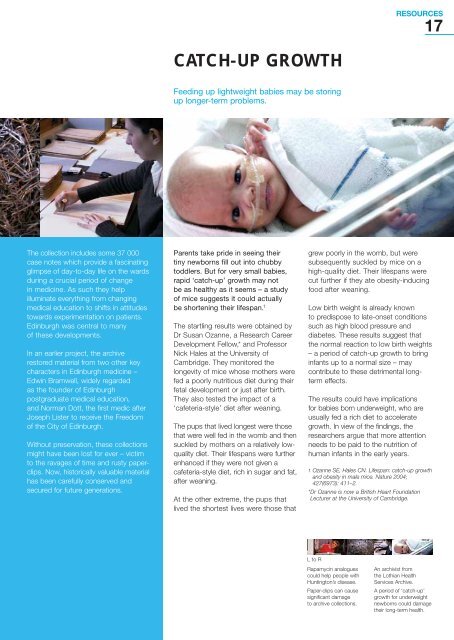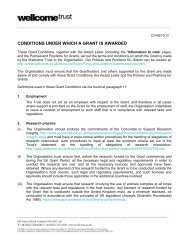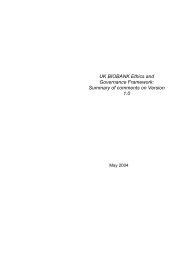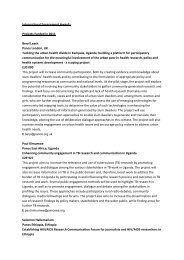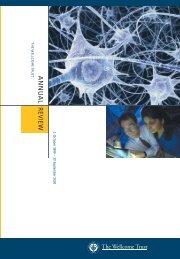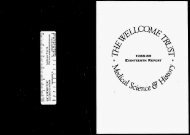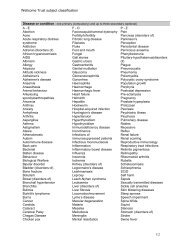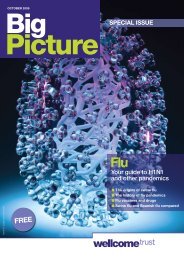You also want an ePaper? Increase the reach of your titles
YUMPU automatically turns print PDFs into web optimized ePapers that Google loves.
RESOURCES17CATCH-UP GROWTHFeeding up lightweight babies may be storingup longer-term problems.The collection includes some 37 000case notes which provide a fascinatingglimpse of day-to-day life on the wardsduring a crucial period of changein medicine. As such they helpilluminate everything from changingmedical education to shifts in attitudestowards experimentation on patients.Edinburgh was central to manyof these developments.In an earlier project, the archiverestored material from two other keycharacters in Edinburgh medicine –Edwin Bramwell, widely regardedas the founder of Edinburghpostgraduate medical education,and Norman Dott, the first medic afterJoseph Lister to receive the Freedomof the City of Edinburgh.Without preservation, these collectionsmight have been lost for ever – victimto the ravages of time and rusty paperclips.Now, historically valuable materialhas been carefully conserved andsecured for future generations.Parents take pride in seeing theirtiny newborns fill out into chubbytoddlers. But for very small babies,rapid ‘catch-up’ growth may notbe as healthy as it seems – a studyof mice suggests it could actuallybe shortening their lifespan. 1The startling results were obtained byDr Susan Ozanne, a Research CareerDevelopment Fellow,* and ProfessorNick Hales at the University ofCambridge. They monitored thelongevity of mice whose mothers werefed a poorly nutritious diet during theirfetal development or just after birth.They also tested the impact of a‘cafeteria-style’ diet after weaning.The pups that lived longest were thosethat were well fed in the womb and thensuckled by mothers on a relatively lowqualitydiet. Their lifespans were furtherenhanced if they were not given acafeteria-style diet, rich in sugar and fat,after weaning.At the other extreme, the pups thatlived the shortest lives were those thatgrew poorly in the womb, but weresubsequently suckled by mice on ahigh-quality diet. Their lifespans werecut further if they ate obesity-inducingfood after weaning.Low birth weight is already knownto predispose to late-onset conditionssuch as high blood pressure anddiabetes. These results suggest thatthe normal reaction to low birth weights– a period of catch-up growth to bringinfants up to a normal size – maycontribute to these detrimental longtermeffects.The results could have implicationsfor babies born underweight, who areusually fed a rich diet to accelerategrowth. In view of the findings, theresearchers argue that more attentionneeds to be paid to the nutrition ofhuman infants in the early years.1 Ozanne SE, Hales CN. Lifespan: catch-up growthand obesity in male mice. Nature <strong>2004</strong>;427(6973): 411–2.*Dr Ozanne is now a British Heart FoundationLecturer at the University of Cambridge.L to RRapamycin analoguescould help people withHuntington’s disease.Paper-clips can causesignificant damageto archive collections.An archivist fromthe Lothian HealthServices Archive.A period of ‘catch-up’growth for underweightnewborns could damagetheir long-term health.


